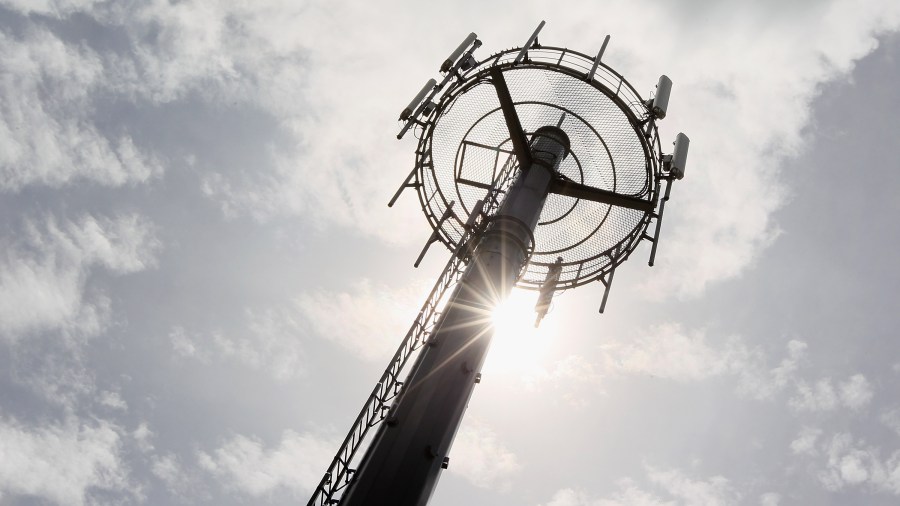The pandemic has shown us that the internet is everything

Since March, millions of Americans have been working, learning, organizing and protesting, entertaining themselves and seeing friends and family online. Internet access is the ultimate essential service. But, like so many things in this country, access is not equal.
This week, we’re starting a new series called “The internet is everything.” We’ll talk about cost, availability and policy. But first, we asked you to tell us about your internet access.
“I’m a technical communication professor. That means that I am helping students learn how to write and communicate in workplace environments. Oh no, my internet connection is unstable,” said Erin Pavlak, who lives near Fort Worth, Texas, as her Zoom connection was starting to fail.

Those glitches happen to Pavlak and her family a lot. Her husband is a software engineer and their daughter is 8 years old. They have video meetings and school online, so they drew up a calendar to prioritize who could be online and when. “Could you use video at this time? Yes or no? Could you be online at all?” she said.
Pavlak and her family only have one choice for internet access, and it costs them more than $100 a month.
Others can choose their cable provider and have swapped to get better access at a cheaper price. Frank Reid lives in southern New Jersey and has two options in his home.
“I’m more than willing to play them off against each other and switch providers as needed. I mean, that’s the game they’ve chosen to create, so I’m just going to play it the way they want us to play it,” Reid said.

In Atlanta, Aaron Honegan works a rotating schedule in IT. “I’m originally from Jamaica. Internet was not, it was more of a luxury item,” he said.
Now, Honegan works from home, and it’s a necessity. He has a cable connection and backups for when things drop, which did happen in the middle of a night shift. “I just switched to my hot spot. It was good enough for me to continue working for the next couple hours until the end of my shift there. But that night if it still wasn’t working, I was preparing to have to travel to the office,” Honegan said.
About 10% of adults in the U.S. don’t have any access to the internet. Black people and Hispanics are more likely than white people to not have access, according to Pew Research. People without access are also more likely to live in rural areas.
Others can use the internet sometimes, but can’t afford to connect at home. Ariel Smythe lives in Minnesota, just north of St. Paul. She’s retired, lives on a fixed income, has a flip phone and had been relying on the library to get access to information. But now it’s closed. “I feel kind of isolated without internet access right now,” she said. “I’m looking forward to when the library is open, and I can go back then surf and read emails and shop to my heart’s content.”
In New Orleans, law student Pippy Veron can’t afford it either, so she’s created a workaround for how she downloads her class lectures.
“I will drive to an acquaintance’s house, get on her Wi-Fi and download all the videos I need to watch,” Veron said.
Parts of the country don’t have the infrastructure for high-speed internet. The FCC says more than 20 million people can’t get any sort of broadband, no matter how much they are willing to pay. But because of the way the agency calculates that figure, it could be double that.
Landen Taylor is 14 years old. He and his family live up a remote road near the coast of Maine. He had trouble getting online for school. “I can’t do any of the Zoom meetings, so I’ve been failing all my classes,” Landen said.
His family pays $160 a month for internet access via satellite, but Landen said it doesn’t really work. The local ISP stops providing access a quarter of a mile away from his home.
It “gets me mad, because [internet providers are] profiting, pretty much, because we’d pay for the best internet, best everything,” he said.
Later this week, we’ll be talking about all of these issues: access, cost, infrastructure and how it all might change now that we know how essential the internet really is.
The future of this podcast starts with you.
Every day, the “Marketplace Tech” team demystifies the digital economy with stories that explore more than just Big Tech. We’re committed to covering topics that matter to you and the world around us, diving deep into how technology intersects with climate change, inequity, and disinformation.
As part of a nonprofit newsroom, we’re counting on listeners like you to keep this public service paywall-free and available to all.
Support “Marketplace Tech” in any amount today and become a partner in our mission.


















